
Collection
Research to support evidence-informed decisions on optimizing the contributions of nursing and midwifery workforces
- Submission status
- Closed
The WHO designated the year 2020 as the “Year of the Nurse and Midwife”, to commemorate the 200th birth anniversary of Florence Nightingale. Nightingale was an early proponent of the use of statistical analysis to inform professional practice and health policy. In celebration and recognition of this, our thematic series in Human Resources for Health focuses on research and analysis that contributes to improved policy, planning and implementation related to nursing and midwifery workforces, and provides new evidence on the impact and contribution of nurses and midwives.
The series aims to inform and support policy makers in countries at all levels of development who are striving to achieve and sustain the maximum contribution from often scarce nursing and midwifery resources. It also aims to contribute to the growing evidence base on the roles and impact of nurses and midwives in achieving global development goals.
This series has now closed to new submissions.
In this thematic series, we are particularly interested to receive manuscripts which contribute to the evidence base on nurses and midwives education, roles, recruitment and retention, or which focus on evaluating their impact and “value” to patient outcomes, costs and health system effectiveness. Manuscripts should be nationally or internationally policy relevant, and where appropriate should examine nurses and midwives within the context of the broader health workforce, and health labour market. Given that the two professions being examined are mainly comprised of women, we welcome papers that focus on gender as a component to analysis and evaluation; we also encourage papers that provide evidence based recommendations for policy that are scaleable at national or international level.This collection of articles has not been sponsored and articles have undergone the journal’s standard peer-review process. The Editors declare no competing interests.
Articles (19 in this collection)
-

-
Optimizing the contributions of nursing and midwifery workforces: #Protect, #Invest, #Together
Authors
- James Buchan
- James Campbell
- Carey McCarthy
- Content type: Editorial
- Open Access
- Published: 02 March 2021
- Article: 26
-
Nurses in advanced roles as a strategy for equitable access to healthcare in the WHO Western Pacific region: a mixed methods study
Authors (first, second and last of 21)
- Sue Kim
- Tae Wha Lee
- Indrajit Hazarika
- Content type: Research
- Open Access
- Published: 15 February 2021
- Article: 19

-
The effect of an mLearning application on nurses’ and midwives’ knowledge and skills for the management of postpartum hemorrhage and neonatal resuscitation: pre–post intervention study
Authors (first, second and last of 4)
- Aurore Nishimwe
- Latifat Ibisomi
- Daphney Nozizwe Conco
- Content type: Research
- Open Access
- Published: 26 January 2021
- Article: 14

-
Factors associated with the recruitment of foreign nurses in Japan: a nationwide study of hospitals
Authors
- Yuko O. Hirano
- Kunio Tsubota
- Shun Ohno
- Content type: Research
- Open Access
- Published: 10 November 2020
- Article: 88
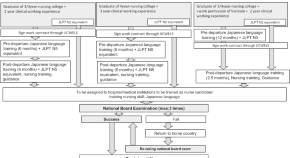
-
Alignment and contribution of nursing doctoral programs to achieve the sustainable development goals
Authors (first, second and last of 10)
- Isabel Amélia Costa Mendes
- Carla Aparecida Arena Ventura
- Álvaro Francisco Lopes de Sousa
- Content type: Research
- Open Access
- Published: 07 November 2020
- Article: 86
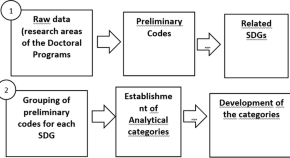
-
Using data to support evidence-informed decisions about skilled birth attendants in fragile contexts: a situational analysis from Democratic Republic of the Congo
Authors (first, second and last of 5)
- Amuda Baba
- Tim Martineau
- Joanna Raven
- Content type: Research
- Open Access
- Published: 29 October 2020
- Article: 82
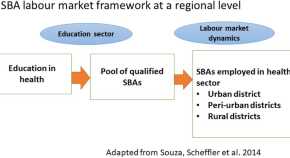
-
Experiences of a new cadre of midwives in Bangladesh: findings from a mixed method study
Authors (first, second and last of 8)
- Rashid U. Zaman
- Adiba Khaled
- Sophie Witter
- Content type: Research
- Open Access
- Published: 06 October 2020
- Article: 73
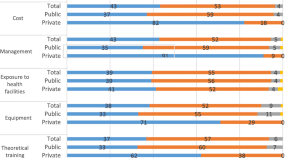
-
Midwives’ challenges and factors that motivate them to remain in their workplace in the Democratic Republic of Congo—an interview study
Authors (first, second and last of 4)
- Malin Bogren
- Malin Grahn
- Marie Berg
- Content type: Research
- Open Access
- Published: 17 September 2020
- Article: 65
-
A cross-sectional study on preferred employment settings of final-year nursing students in Israel
Authors (first, second and last of 4)
- Yael Sela
- Keren Grinberg
- Rachel Nissanholtz-Gannot
- Content type: Research
- Open Access
- Published: 31 July 2020
- Article: 53
-
Mentoring the working nurse: a scoping review
Authors (first, second and last of 4)
- Jerilyn Hoover
- Adam D. Koon
- Krishna D. Rao
- Content type: Review
- Open Access
- Published: 29 July 2020
- Article: 52
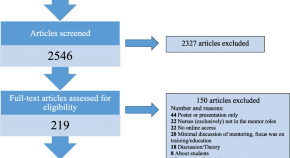
-
Developing metrics for nursing quality of care for low- and middle-income countries: a scoping review linked to stakeholder engagement
Authors (first, second and last of 8)
- David Gathara
- Mathias Zosi
- Mike English
- Content type: Review
- Open Access
- Published: 10 July 2020
- Article: 34

-
Building capacities of Auxiliary Nurse Midwives (ANMs) through a complementary mix of directed and self-directed skill-based learning—A case study in Pune District, Western India
Authors (first, second and last of 6)
- Shilpa Karvande
- Vidula Purohit
- Nerges Mistry
- Content type: Research
- Open Access
- Published: 17 June 2020
- Article: 45
-
Accommodating conscientious objection in the midwifery workforce: a ratio-data analysis of midwives, birth and late abortions in 18 European countries in 2016
Authors
- Valerie Fleming
- Clare Maxwell
- Beate Ramsayer
- Content type: Research
- Open Access
- Published: 08 June 2020
- Article: 42

-
Burnout in nursing: a theoretical review
Authors (first, second and last of 4)
- Chiara Dall’Ora
- Jane Ball
- Peter Griffiths
- Content type: Review
- Open Access
- Published: 05 June 2020
- Article: 41

-
Reimagining the role of the nursing workforce in Uganda after more than a decade of ART scale-up
Authors
- Henry Zakumumpa
- Content type: Research
- Open Access
- Published: 29 May 2020
- Article: 39
-
Mapping the peer-reviewed literature on accommodating nurses’ return to work after leaves of absence for mental health issues: a scoping review
Authors (first, second and last of 7)
- Christine L. Covell
- Shamel Rolle Sands
- Ivy L. Bourgeault
- Content type: Review
- Open Access
- Published: 19 May 2020
- Article: 36
-
Research to support evidence-informed decisions on optimizing the contributions of nursing and midwifery workforces
Authors
- James Buchan
- James Campbell
- Carey McCarthy
- Content type: Editorial
- Open Access
- Published: 20 March 2020
- Article: 23
-
Caribbean nurse migration—a scoping review
Authors
- Shamel Rolle Sands
- Kenchera Ingraham
- Bukola Oladunni Salami
- Content type: Review
- Open Access
- Published: 16 March 2020
- Article: 19

